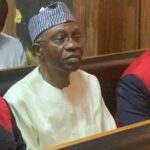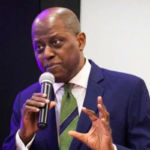Yemi Cardoso, the nominated CBN governor following Emefiele’s resignation, has assumed duty. Some would have preferred if the appointment was given to an economist because of the precarious state of the Nigerian economy. Yes, economists are seen as ideal candidates to lead a central bank because they possess the expertise and knowledge of economic situations.
Economists can formulate policies based on how economic players respond and form their expectations for inflation, whether adaptive or rational, to forecast how the economy will converge to its potential equilibrium. With dwindling foreign reserves, they can formulate strategies to optimise the use and replenishment of these reserves. Given the volatile exchange rate regime and a recently devalued Naira, they can design policies to stabilise the exchange rate, fostering investor confidence and promoting economic stability. However, being an economist is not sufficient enough to be considered an effective central banker. It is stipulated and expected that the CBN must be independent, and the governor ensures it happens.
But in a political setting, as in life, we work with the cards we are dealt. Understandably, Cardoso is not an economist, and as they say, it is difficult to become left-handed at 60. Nevertheless, there are silver linings for this appointment. Besides, many bankers in the Western economies are not economists, but augment their economics knowledge by demonstrating commitment and credibility to assert their independence. Central bank independence is important because it allows the governor to make monetary and financial decisions free from political pressure and short-term electoral considerations. Independence ensures that decisions like setting interest rates or managing currency reserves are based on sound economic principles and long-term national interests rather than immediate political gains.
For Cardoso to succeed as CBN governor, he must act like an independent central banker by adhering to the principles of independent central banking. First, he must operate under a defined scope of authority to ensure that he does not abuse the power of his office. Secondly, he must set himself up to be guided by established rules, conventions and traditions under the 2007 CBN Act. Thirdly, he must execute his tasks competently and earn and maintain the trust of the Nigerian public for his competence.
NYG: 100m finalists emerge as 200m, 400m heats continue today
Leah Sharibu ‘dumps first husband’, remarries another ISWAP commander
Primarily, his focus should be on stabilising inflation, only intervening in the short-term interest rate, as President Bola Tinubu announced in his inaugural speech. Cardoso must adopt an inflation-targeting framework for Nigeria’s monetary policy by setting explicit targets for inflation. Nigeria has no explicit annual inflation target figure, unlike the Western and key emerging economies. For example, the UK and America have published a two per cent inflation on their website since the 1990s.
Theoretically, creating inflation can be as simple as printing more money into the economy, but controlling inflation could be difficult, as proved by his predecessors. The logic to making his task easier will be to commit to rules and maintain the institution’s independence, which includes being apolitical. Cardoso should not function arbitrarily as his predecessors did with impulsive policy decisions like printing currency to finance deficits, the Naira redesign, eNaira, or even the recent unification of the exchange rate system.
Cardoso needs his banking skills to design a strategy for financial development in Nigeria to ensure that the monetary policies, like interest rate changes, have the desired effects on the broader economy. This includes making SMEs, which comprise 96.7 per cent of all businesses in Nigeria, becoming more productive and competitive. He must improve financial inclusion to integrate businesses and individuals into the formal financial system. The outcome of this policy will see growth in local production, leading to lower import dependence and attracting exports. Thus creating less pressure on the demand for foreign exchange. With a functioning economy, Tinubu’s call for Foreign Direct Investment (FDI) at NASDAQ will be unnecessary. That is because thriving domestic enterprises will bring the needed prosperity than what the foreign investors would bring. The SMEs are primarily interested in growth and reinvestment, while the latter are more concerned about repatriating their profits out of the country instead of reinvesting.
As CBN governor, he is also tasked to manage the foreign reserve and exchange regime. Nigeria’s foreign reserves are now controversial following the August audit reports, where over 40 per cent of Nigeria’s foreign reserves are tied up as encumbered assets.
Similarly, Cardoso must design strategies for dealing with volatile currency risks following the unified exchange rate system that led to the devaluation of Naira. For these, he must consider the trade-offs and implications of interventions in the foreign exchange market and the broad macroeconomic impacts foreign reserve holdings can have from changes.
Lastly, some government actions in Nigeria involve redistributing wealth and vying for political dominance. Cardoso must strive not to become a jack of all trades. Programmes to bridge regional disparities and investment in infrastructure, among other issues, should be kept outside the realm of the CBN. These are critical issues, but it is not the CBN’s job to fix them. It may be tempting for him to address these issues as it will give him more power and prestige in the short run, but it makes him lose independence in the long run.
Ultimately, while central banking remains a dark art and often a misunderstood domain, there are moments when Cardoso must use discretion and always consider the trade-offs involved in his actions, especially now – as the country faces pressing economic challenges.

 Join Daily Trust WhatsApp Community For Quick Access To News and Happenings Around You.
Join Daily Trust WhatsApp Community For Quick Access To News and Happenings Around You.

